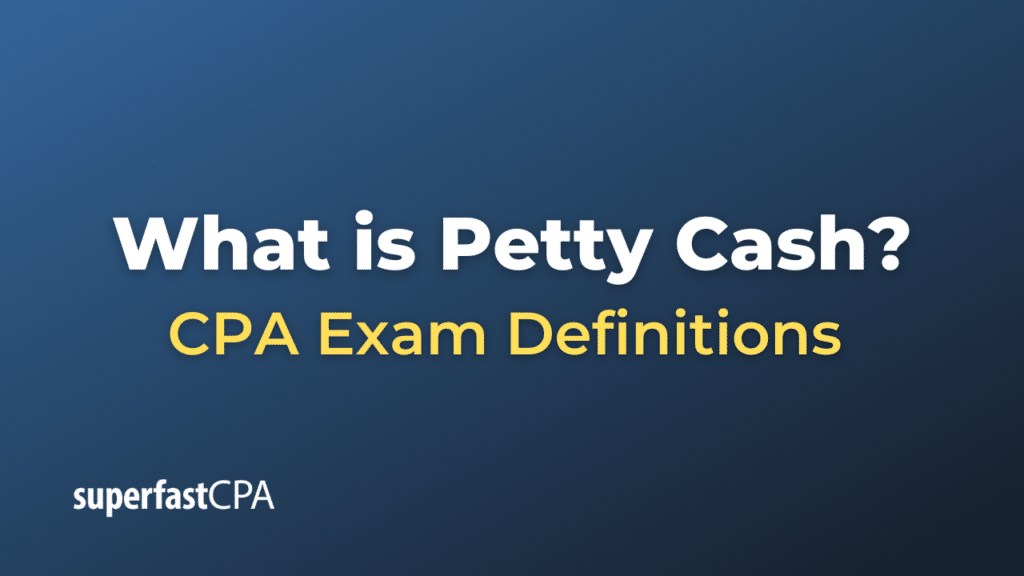Petty Cash
Petty cash is a small amount of discretionary cash that is kept on hand by a business for making small, miscellaneous payments. These can include expenses such as minor office supplies, postage dues, lunch for employees, parking fees, or any other small expenses that require immediate payment and for which it wouldn’t be practical to write a check or use a credit card.
The petty cash is usually kept in a secure location, like a cash box, and is managed by a specific person, often called the petty cash custodian. When the cash in the petty cash fund runs low, the custodian will refill the cash to a predetermined level by writing a check.
To ensure transparency and accountability, businesses typically require receipts for all expenditures from the petty cash fund. This allows the company to track how the money is being spent and to replenish the fund appropriately. It’s also necessary for proper accounting and auditing purposes.
Example of Petty Cash
Let’s say a company sets up a petty cash fund of $100 for minor office expenses. This is entrusted to an employee, the petty cash custodian.
- One day, an office employee realizes they’re out of staples. The custodian goes to the nearby stationery store and buys a box of staples for $5.
- The custodian pays with the petty cash, gets a receipt, and brings the staples back to the office.
- Upon returning to the office, the custodian subtracts the $5 from the total petty cash fund, leaving $95. They also note down in a petty cash log or book that $5 was spent on staples, and they attach the receipt as a record of the transaction.
- This process repeats each time a minor expense needs to be paid, each time subtracting from the petty cash on hand, and noting the expense.
- When the petty cash fund gets low – say it’s down to $20 – the custodian would then write a check for $80 (or whatever amount needed) to bring the petty cash fund back up to the original amount of $100. They would use the receipts and the log book as the justification for the check.
This way, the company can account for these small expenses without having to write checks or make credit card payments for very small amounts, while still keeping track of expenditures.













